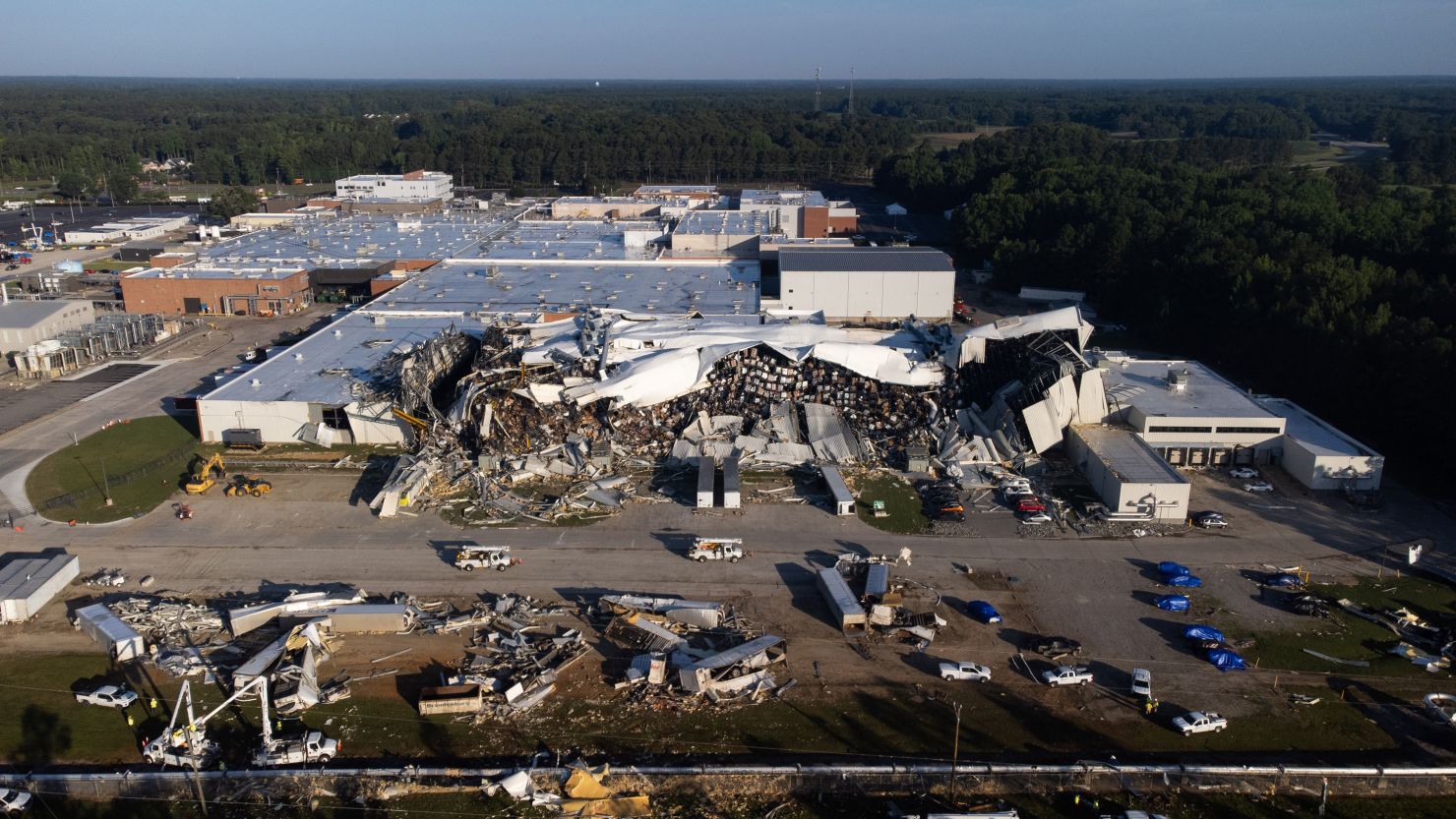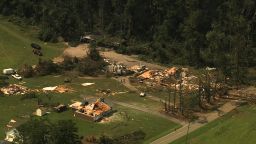Drug giant Pfizer is informing hospitals that dozens of its products could face “continued or new supply disruptions in the near-term” after an EF-3 tornado last week severely damaged its plant in Rocky Mount, North Carolina.
The pharmaceutical company sent a letter to customers on Friday, advising hospitals on more than 30 products with less than three months of inventory in the company’s distribution chain, including certain dosages of epinephrine for allergic reactions, fentanyl for severe pain and the pain blocker lidocaine.
“In order to provide customers with the ability to plan for patient care today, we have identified a subset of Rocky Mount products by NDC that may experience continued or new supply disruptions in the near-term due to this weather event,” the company wrote in the letter viewed by CNN. “This subset is based on Pfizer market share and inventory levels of less than 3 months across our Pfizer distribution centers and the wholesale chain.”
Pfizer noted that the three-month inventory metric represents an abundance of caution based on the information available and is not reflective of any estimates of production restart. The facility was closed, and the company did not have an estimate for when production would restart, it said.
The products include at least 15 drugs, some of which already had been on the US Food and Drug Administration’s shortages list. Supply chain experts have been concerned that the plant’s closure will exacerbate an already historic level of drug shortages in the US, but Erin Fox, who tracks shortages as associate chief pharmacy officer for shared services at the University of Utah Health, said that Pfizer’s list didn’t make her overly concerned.
“Certainly things may worsen a bit, but the information Pfizer has provided lets us know that this is fairly short term and not a years long issue we’ll be dealing with,” Fox told CNN in an email. She noted the fact that many of the drugs have been in short supply means organizations have ways to manage.
The FDA said Friday that Pfizer put the inventory of many products on strict allocation to “have equitable distribution of the products and ensure availability to those in most need, as well as to avoid hoarding.”
Get CNN Health's weekly newsletter
Sign up here to get The Results Are In with Dr. Sanjay Gupta every Tuesday from the CNN Health team.
The agency said this could lead to localized supply disruptions depending on contractual relationships for supplies.
Pfizer, in its letter to customers, said that as it learns more from a site assessment and estimated production restart dates, it will refine its information and provide additional updates.
The fact that a warehouse sustained the bulk of the damage rather than production lines, manufacturing experts have suggested, could mean any potential shortages won’t last as long as if drug manufacturing were taken down.
That plant is one of the largest facilities manufacturing sterile injectable drugs in the world, with more than 1.4 million square feet of manufacturing space on 250 acres in the eastern part of the state, Pfizer says.
“It will certainly take time for that site to recover,” Fox said, “but it’s such good news that the production lines weren’t impacted. If a tornado had to hit, this seems like the best case scenario.”







